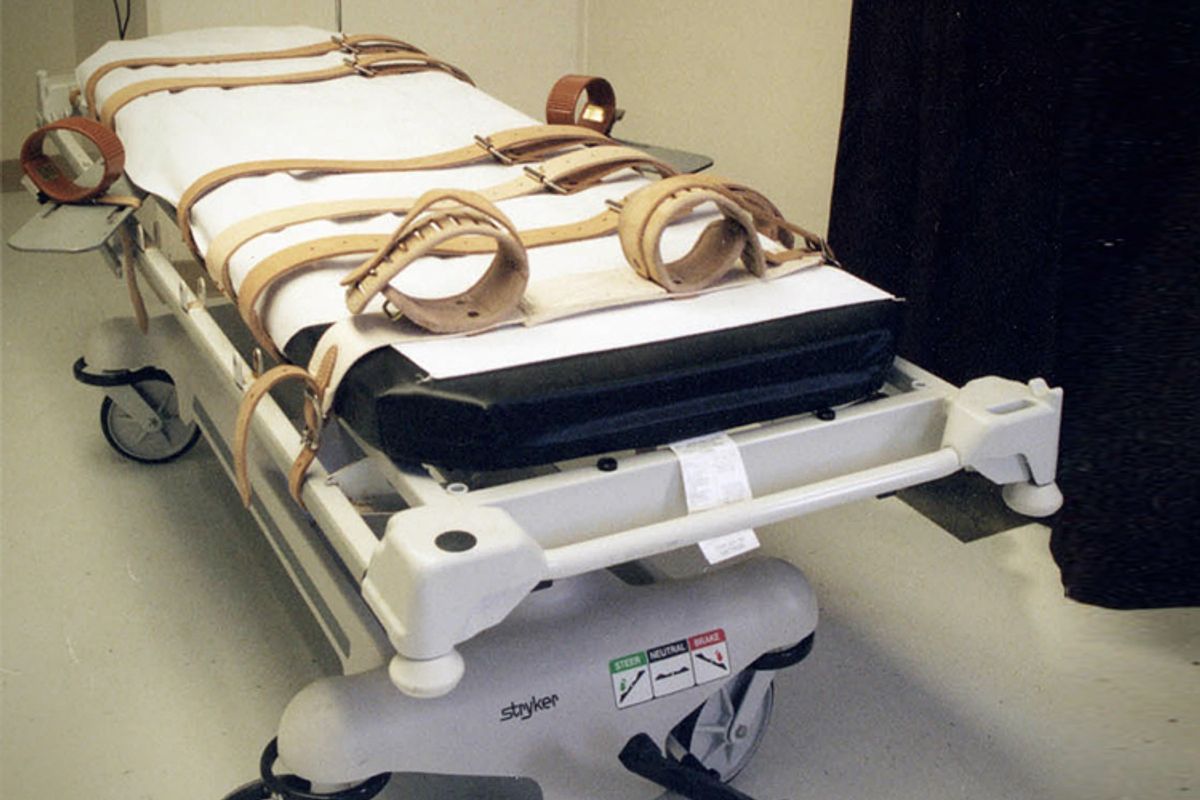Despite two executions this year using untested lethal cocktails that, according to witnesses, resulted in long and torturous deaths, Oklahoma has plans to carry out two more killings using new, untried cocktails.
The grim lethal injection experiment come in the wake of a European ban on exporting the anesthetic pentobarbital for use in executions. Rather than prompting an end to capital punishments, death penalty states like Oklahoma have turned to previously untested cocktails, with drugs produced in unregulated compound pharmacies.
Despite a state ruling last month that corrections departments could no longer keep secret from death row inmates the contents of the injections that will kill them, two more deaths with untested cocktails remain scheduled. Oklahoma plans to execute Clayton Lockett on 22 April and Charles Warner on 29 April. Both have been convicted of rape and murder.
As the Guardian reported, "Assistant attorney general John Hadden said the state plans to employ a lethal three-drug combination of midazolam, pancuronium bromide and potassium chloride. The combination is believed never to have been tried before in U.S. executions."
In Ohio, for example, an execution in January using a previously untested drug combination produced a horrifying death tableau. An eye witness reported on Danny McGuire's death claimed he, "started struggling and gasping loudly for air, making snorting and choking sounds which lasted for at least 10 minutes, with his chest heaving and his fist clinched. Deep, rattling sounds emanated from his mouth.”
Warner's attorney, Madeline Cohen, who plans to file for a stay of execution in Oklahoma, commented, "This is a very, very troubling protocol."
Meanwhile, Wednesday in Texas, a U.S. District Court judge for the Southern District of Texas, stayed the scheduled executions of Tommy Sells and Ramiro Hernandez-Llanas until all information about the procurement of execution drugs, including information about the supplier of the drugs and the testing of the drugs be given. "We hope that the Texas Department of Criminal Justice will finally decide to comply with the law, and cease attempting to shroud in secrecy one aspect of their job that, above all others, should be conducted in the light of day," the plaintiffs' attorneys responded to the ruling.



Shares